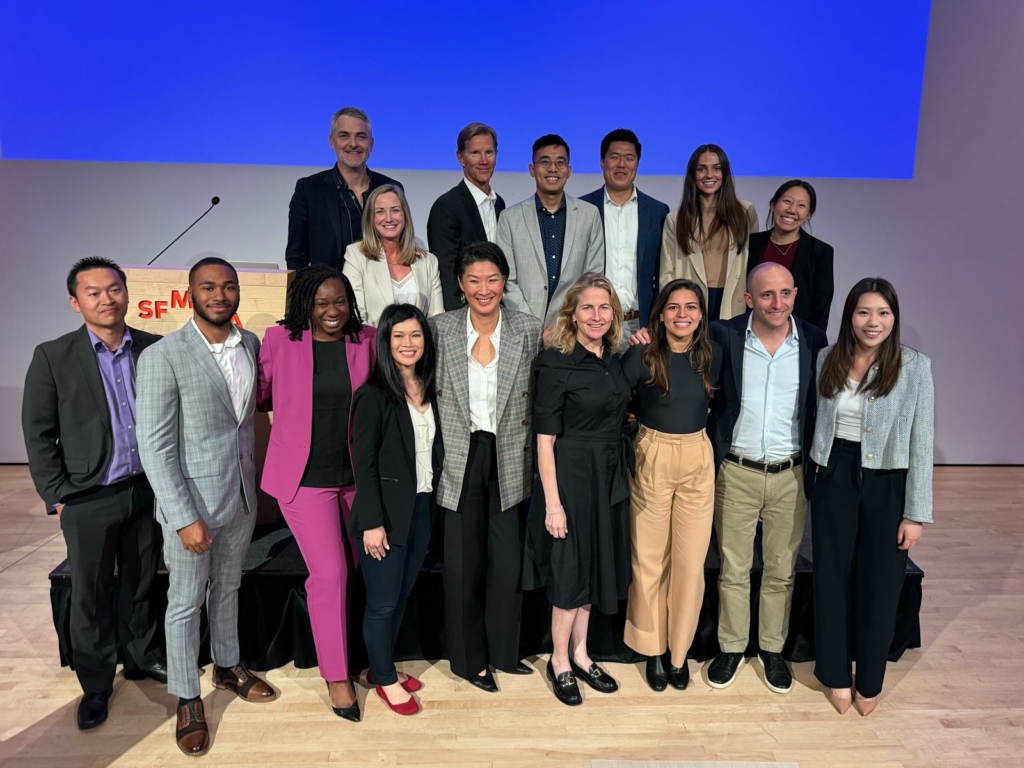What triggered your interest in education innovation and education entrepreneurship? How did your education at Stanford help you in your journey?
My mom is a professor and instilled in me the importance of education as a lever for social mobility. I was fortunate to attend great schools and enrichment programs that gave me a strong academic foundation. Volunteering with mentoring and tutoring programs, I saw firsthand the inequities in the education system and I wanted to pursue a career focused on increasing access to quality education. I was previously a chemical engineer at P&G and did not have a background in education or entrepreneurship. Stanford gave me the knowledge and connections to build my expertise and credibility in education entrepreneurship.
What led you to become an investor in education startups? What were your career steps to becoming Co-Founder and General Partner at Reach Capital?
I initially wanted to be an edtech operator vs. investor. However, I met my co-founder, Jennifer Carolan, in one of my classes she was co-teaching at Stanford. She invited me to work with her at NewSchools Venture Fund where we began making small bets in edtech startups and building out the ecosystem. We started investing as devices were going into the classroom and we backed solutions using technology to improve teaching and learning. As our early investments grew into category leaders, we saw an opportunity to scale our impact and decided to launch a dedicated edtech venture fund, Reach Capital.

What trends and innovations are you most excited about in the education entrepreneurship landscape?
I am excited about AI tools that help people throughout their career journey from discovering the right career path, building relevant skills, applying to jobs, and succeeding in their role. AI is democratizing access to job search tools, resume reviews, and interview prep allowing more people to identify and pursue their dream role. I am also excited to see AI solutions in the workplace that continually assess your skills through everyday tasks and can not only identify skill gaps, but also provide real time coaching, feedback and relevant learning content.
What is one unique criteria you look for when evaluating potential investments? How important is learning science and efficacy research in your work?
I look for whether a founder has lived experience in the domain they are building. These founders often have unique market insights and better understand their users’ pain points. I believe impact and financial returns are correlated and thus learning science and efficacy research is important. We invest in mission-driven founders who have a theory of change about how their product will improve outcomes for their users. At the earliest stages, we look for leading indicators of efficacy such as a learning science or research basis for the product design, high user engagement and satisfaction, and case studies demonstrating impact.

What was your favorite education class at Stanford and why?
An education entrepreneurship course at the Stanford d.school. Besides meeting my co-founder in this class, I enjoyed bringing a design thinking approach to solving education problems and iterating on different solutions based on end-user feedback. I liked that it was cross-disciplinary so I was working alongside students from different departments all with unique perspectives and insights. I also enjoyed meeting and learning from education entrepreneurs who were already building solutions to address a variety of pain points in education.
What advice would you give to Stanford students interested in education entrepreneurship?
If, like me, you are coming from outside of education, educate yourself on the education system and the barriers to innovating in this sector. Spend quality time with educators and learners to understand their challenges, their motivations, and their aspirations. Build your network by attending education convenings, conferences, and hackathon events. Stay on top of emerging trends and develop your own unique perspective on how to tackle new and persistent challenges in education.
